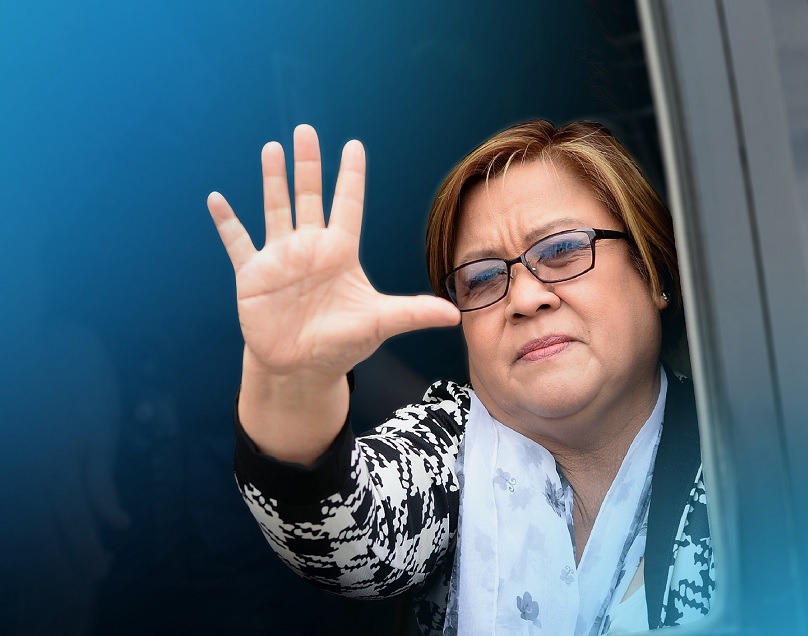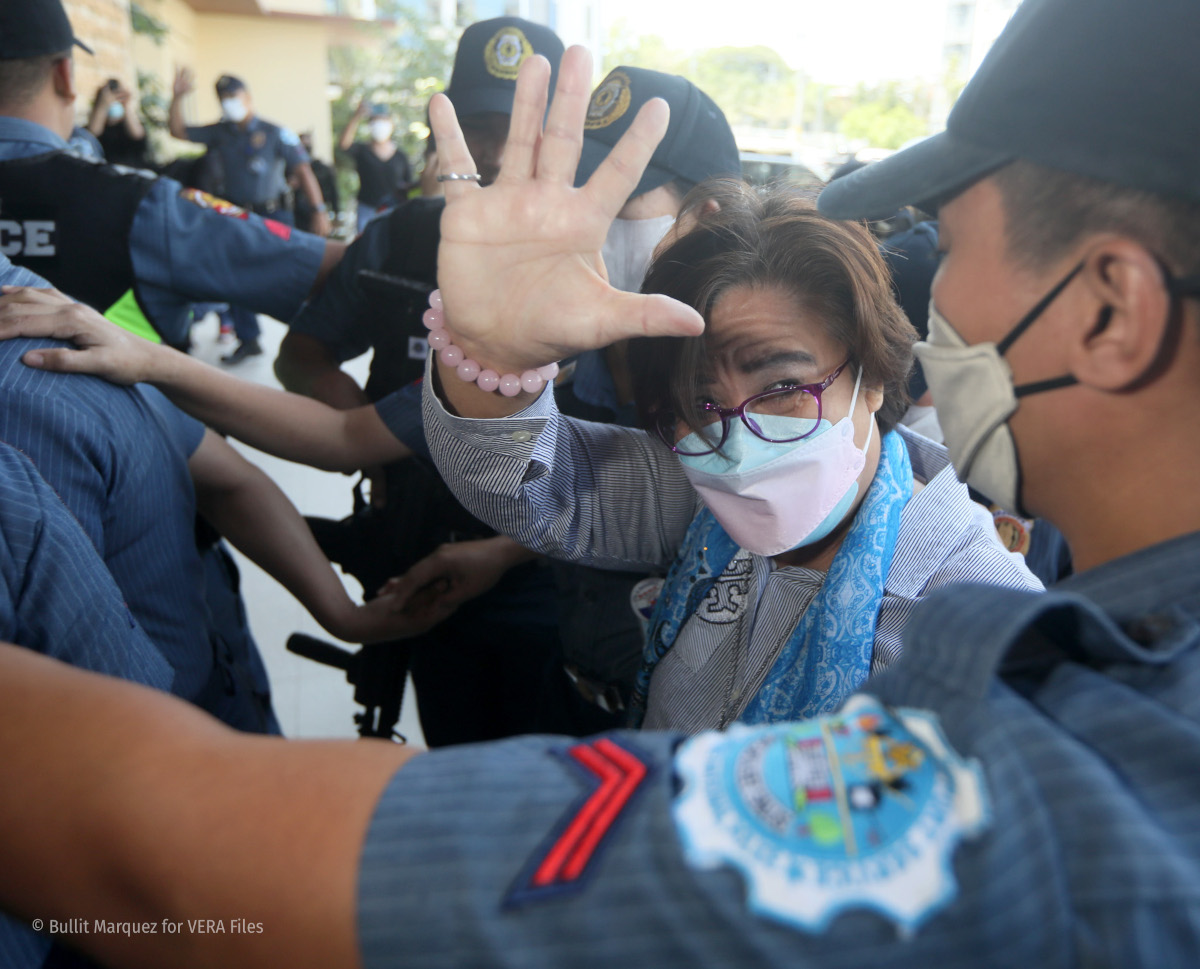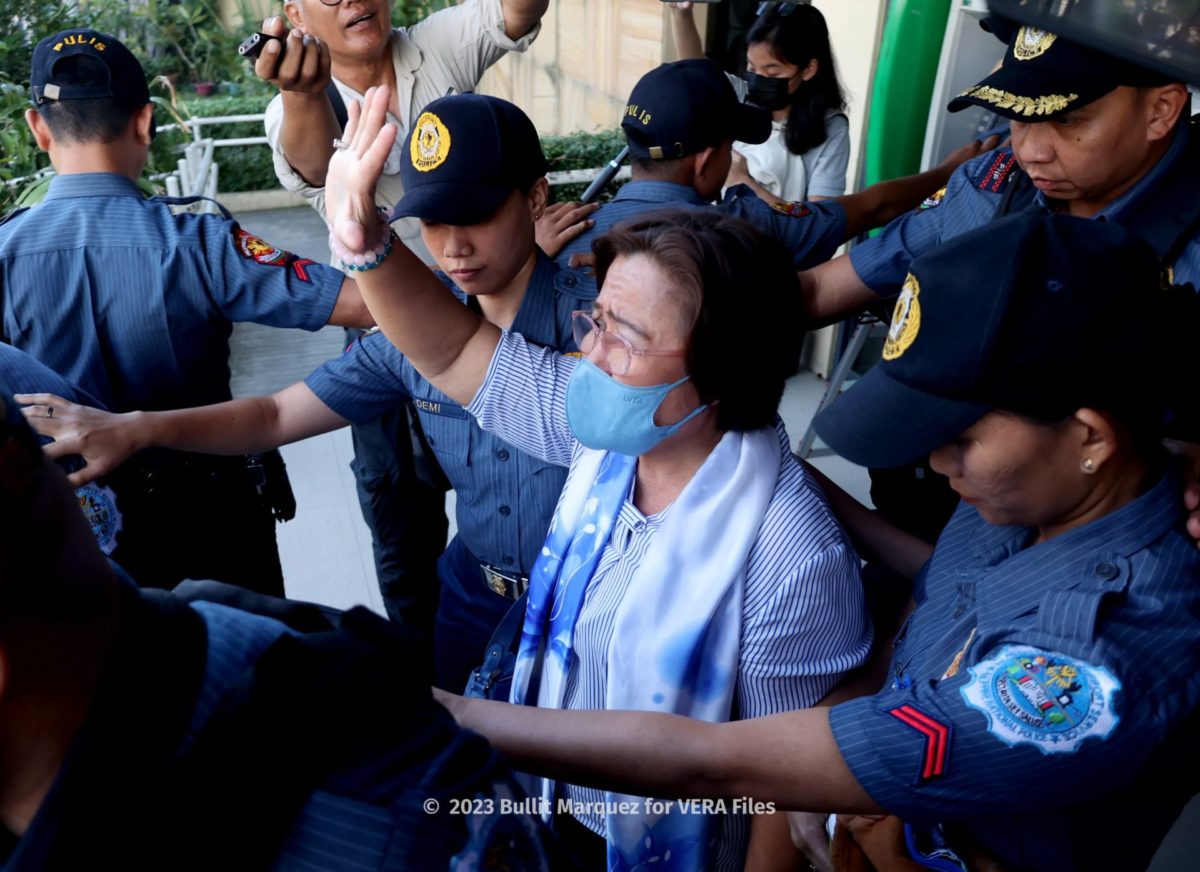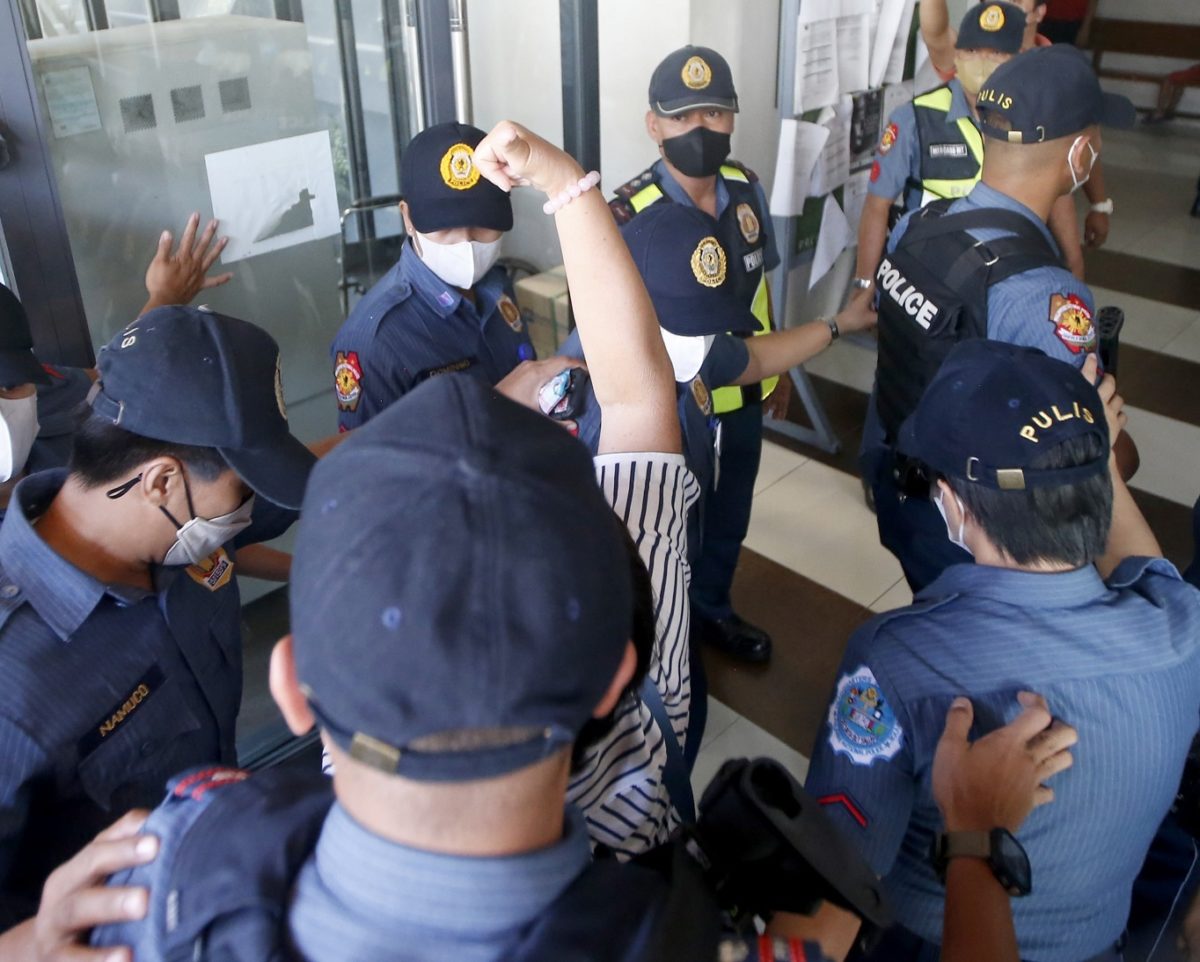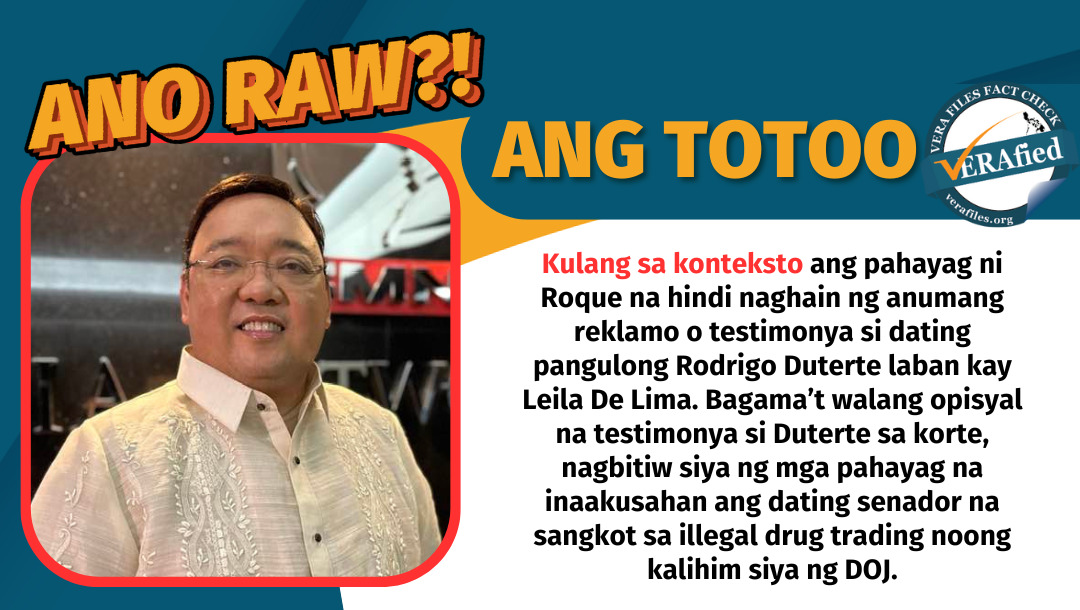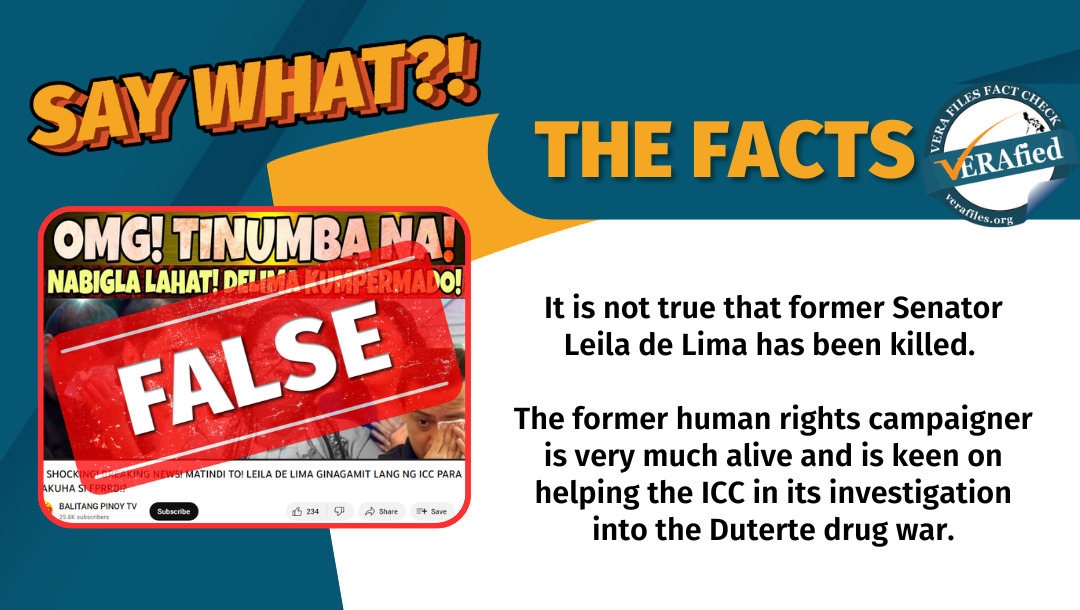Why is Leila de Lima in jail?
Three years after her trial began in July 2018, her three cases have had a merry-go-round of seven judges total: four judges have inhibited themselves from the case, two have let go by retiring, and only a handful of the 54 witnesses lined up by the prosecution have testified. Of the three cases, one case has been dismissed, effectively acquitting her. Last week, a second Bureau of Corrections convicted drug lord was the second witness against De Lima to die. In her own words, her detention is a machinated persecution of an opposition figure.
Leila de Lima dared to have balls and gravitas to hold Rodrigo Duterte accountable for the Davao Death Squad killings in 2009. The political opposition aiming for victory in the 2022 elections should have a firm grip of this aim with a straight arrow: to hold Duterte and his family accountable. If the International Criminal Court decides to indict him, the more the opposition, once it will be in power, stands at a crucial juncture in our history; it must have the boldness and the weight of Leila de Lima to turn over Rodrigo Duterte to the Interpol for detention in Scheveningen Prison. Duterte is on panic-attack mode, hence the reason he wants to run for vice president.
Who has the balls and the gravitas of Leila de Lima?
Not Manny Pacquiao. On September 2016, the neophyte senator was tasked by the Senate’s Duterte cronies to move to unseat De Lima from the chairmanship of the Senate justice committee. This, after De Lima started investigations on the spate of killings in the war on drugs by calling confessed hitman Edgar Matobato to testify.
Not Panfilo Lacson. The same sixteen senators who unseated De Lima had also elected Lacson vice chair of the justice committee. Lacson had belittled Matobato: “He could not be taken seriously.” On September 2019, Lacson slammed the United States Senate for passing an amendment to a bill denying entry to any Philippine official involved in the detention of De Lima. In the aftermath of the 2017 Senate hearings on drug smuggling, resigned Bureau of Customs chief Nicanor Faeldon accused Lacson’s son of being a smuggler, the same son who had also been associated with Paolo Duterte in photos.
Not Tito Sotto. He never corrected the label given him by one media outfit that he was an ally of Duterte. Like Lacson, Sotto expressed protestations against the US Senate for meddling in the case of De Lima. “Maybe they think we are still under Commonwealth rule,” he said. “I am not for or against Senator De Lima. As I’ve said, she’s innocent until proven guilty.” But that exactly is the problem when one contrives a middle ground between good and evil for political survival. Had Sotto accommodated De Lima, Duterte’s public shaming of him would have ripped him to smithereens. It is a menace many politicians fear, because what usually follows is an epidemic of attacks by Duterte troll armies.
Not Grace Poe. She probably had the most bizarre reason for justifying her vote for unseating De Lima of the justice committee chairmanship. She accused De Lima of grandstanding, polar bickering, and toeing partylines. Poe also trusted the troll-generated line that drugs flourished in Bilibid during De Lima’s time, which, in hindsight, has proven the opposite. Why is she the most bizarre? Because she can opt to be wishy-washy, like when she accused the United Nations and the European Union of rushing to condemn Duterte for human rights violations.
Of all opposition figures today, Leila de Lima was the first to expose the architecture of the Davao Death Squad killings: the modus operandi, the financial reward system, the patterns of impunity, the personalities and units involved, and even the possible involvement of the Duterte family in the drug trade. The hearings she had conducted in Davao city in 2009 on the Davao Death Squad were the only ones that were done fearlessly and without favor.
De Lima had the most courage in her Commission on Human Rights recommendation, which today still awaits Duterte: to put him out of office and, hence, power so that there will be an objective investigation on the extent of his involvement. That is the reason Duterte hated De Lima so much, and used the powers of his presidential office to shame her and rage at her with the full might of vendetta. Remember his first State of the Nation Address? He glanced at De Lima as he was on his way to climb the podium. De Lima was his elephant in the room, the nemesis that he feared the most, the one that made him shudder in cowardice because only she had the gumption to expose the barest of his souls: that he was a “sociopathic serial killer” based on the evidence she had on her hands.
The world has since embraced an activism of advocacy for Leila de Lima. The European parliament says her charges are almost entirely fabricated. Amnesty International has called her a prisoner of conscience, and said she should be immediately and unconditionally released. The Council of Asian Liberals and Democrats had also called for her immediate release. Liberal International awarded her the Prize for Freedom in 2018. The Parliamentarians for Global Action said her voice is needed to defend Philippine democracy, and has called on the Senate to allow her teleconferencing participation in hearings amid the pandemic. UN Secretary General Antonio Guterres called her detention arbitrary and politically motivated.
Leila de Lima had warned us of the “terrible and frightening view of the Davao Death Squad.” Today, we live that scourge. We will continue to live it if we do not heed her now.
Who among the opposition or those suddenly posing as opposition has the moral clarity of Leila de Lima?
